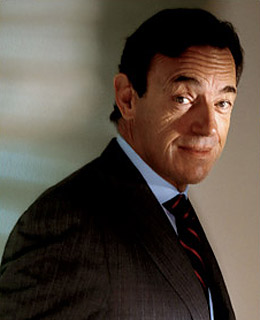
Less than a decade ago, Maybelline was a mass-market cosmetics brand with an image problem. But in 1996, it was taken over by French personal-grooming behemoth L'Oréal, headed by Lindsay Owen-Jones. As it has done with so many of its 17 beauty brands—like the zany personal-care line Garnier or the ethnic hair-care concern SoftSheen/Carson—L'Oréal gave Maybelline a marketing face—lift and sent it out to conquer the world. "I had what was perhaps an unrealistic ambition," Owen-Jones, 58, told TIME: "to put a Maybelline lipstick in the hand of every woman in China."
Not so crazy. Maybelline was launched in China in 1998. Now, buoyed by the popularity of products such as Water Shine Diamonds lipstick, the brand is recognized by 95% of Chinese women. In January, Owen-Jones, who is British, celebrated his 20th year at the helm of L'Oréal. He is one of the few non-Frenchmen to thrive in what remains an insular corporate culture. Along the way, he has transformed a once modest French firm into the world's largest cosmetics company, whose products sit on shelves from Melbourne to Moscow.
Owen-Jones went to work for L'Oréal in 1969, fresh out of management school in France. He became CEO in 1984 and chairman in 1988. Once in charge, he set about globalizing beauty. But he has proved most adept at staying one step ahead of his customer. His key to being a successful business leader? "The ability to dream rather than simply plan."
From the Archive
Putting on Heirs: A new generation is leading Europe's biggest family firms toward new profits — and risks